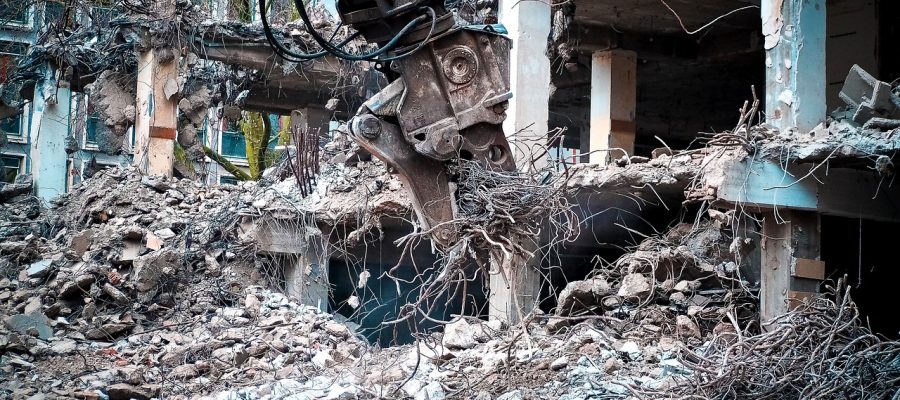Introduction
Demolition is a key part of many construction projects, requiring careful planning, safety measures, and expertise. In cities like Edmonton, where safety and regulatory compliance are paramount, the role of a general demolition contractor becomes even more critical. A skilled demolition contractor ensures that every step from planning and site preparation to waste management is carried out efficiently and safely.
This article takes a closer look at the responsibilities of a general demolition contractor and how they ensure that the demolition process runs smoothly and meets all local requirements.
The Value of Hiring a General Demolition Contractor
Hiring a general demolition contractor is essential for anyone looking to complete a demolition project, whether it’s for residential, commercial, or industrial purposes. With experience in handling various demolition tasks, a contractor manages the project from start to finish, ensuring that every phase is executed with precision.
Why You Need a Contractor
- Safety First: Demolition is inherently dangerous, involving structural collapses, falling debris, and potential exposure to hazardous materials. A demolition contractor ensures that all safety protocols are followed, reducing the risk of accidents on-site.
- Efficient Execution: By overseeing the demolition process, contractors keep projects on schedule and within budget. For large-scale projects, this efficiency can significantly impact the overall timeline of construction.
- Environmental Responsibility: Modern demolition focuses on sustainability, recycling, and proper waste disposal. Contractors work to reduce landfill waste and safely handle hazardous materials like asbestos.
Responsibilities of a General Demolition Contractor
1. Site Assessment and Preparation
Before any demolition begins, a contractor conducts a thorough site assessment. This step involves inspecting the structure, identifying potential hazards, and planning the safest and most efficient method for demolition. Contractors also ensure that surrounding areas are protected and secure, mitigating risks to nearby structures or public spaces.
2. Obtaining Required Permits
Demolition projects require various permits, especially for large-scale or complex jobs. A contractor handles the entire permitting process, ensuring that the project complies with local regulations and laws, which is particularly important in cities with strict construction standards like Edmonton.
3. Safety Protocols and On-Site Management
Safety is always a priority during demolition. Contractors are responsible for ensuring that workers are equipped with the necessary personal protective equipment (PPE) and that the site is safe for both workers and the public. They also manage the deconstruction process, coordinating heavy machinery and monitoring structural stability to prevent accidents.
4. Handling Hazardous Materials
Older buildings may contain hazardous materials like asbestos or lead. Demolition contractors are trained to identify and safely remove these substances, following all environmental and safety regulations. Proper disposal of hazardous materials is crucial to prevent contamination and protect the health of workers and nearby communities.
5. Waste Management and Recycling
In today’s construction industry, sustainable practices are increasingly important. A responsible contractor will work to minimize waste by recycling materials like metal, wood, and concrete. Proper waste management also reduces the environmental footprint of demolition projects, aligning with industry trends toward greener construction practices.
The Demolition Process: Step-by-Step
- Initial Planning: The contractor assesses the building and surrounding site to create a detailed demolition plan. This includes identifying hazardous materials and planning for waste disposal.
- Site Preparation: The contractor ensures the site is secure, setting up barriers, and making safety preparations before any demolition work begins.
- Demolition Execution: Using specialized equipment like excavators and bulldozers, the building is carefully dismantled. Contractors monitor the process closely to ensure safety and efficiency.
- Waste Removal and Cleanup: Once the structure has been demolished, contractors manage the removal of debris, focusing on recycling materials when possible and ensuring hazardous materials are disposed of safely.
FAQs on General Demolition Contracting
Why is hiring a demolition contractor important?
Demolition contractors bring expertise, ensuring that every project follows safety standards, adheres to regulations, and is completed efficiently.
How does a contractor handle hazardous materials?
Contractors are trained to identify and remove hazardous materials like asbestos and ensure they are disposed of in compliance with local environmental regulations.
What should I expect during the demolition process?
The contractor will manage the project from initial planning to cleanup, handling all safety protocols, waste management, and on-site supervision.
How is waste from demolition disposed of?
Contractors focus on recycling and proper disposal of debris, working to minimize landfill waste and handling hazardous materials with care.
What role do permits play in demolition?
Permits ensure the project complies with local laws, and a general demolition contractor handles obtaining these permits to ensure the project runs smoothly and legally.
Conclusion
A general demolition contractor plays a vital role in ensuring that demolition projects are completed safely, efficiently, and in line with local regulations. From handling permits to overseeing the demolition process and managing waste disposal, contractors offer comprehensive services that make the demolition phase of construction seamless and secure.
For construction projects in Edmonton, choosing a skilled contractor ensures peace of mind, as they handle the complexities of demolition with expertise and a commitment to safety.




